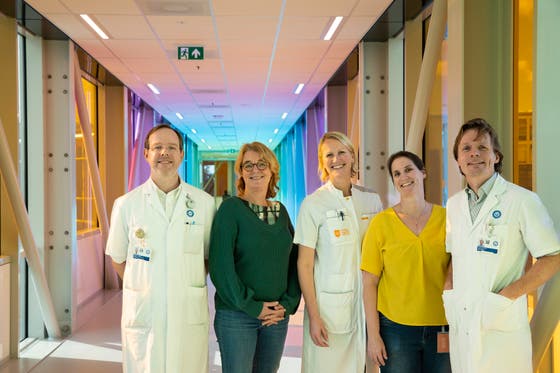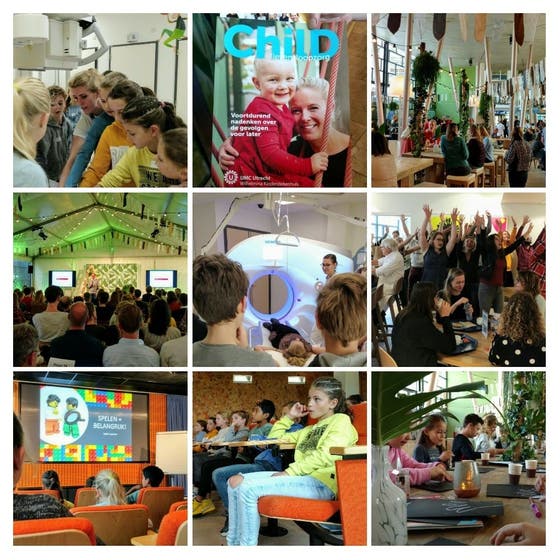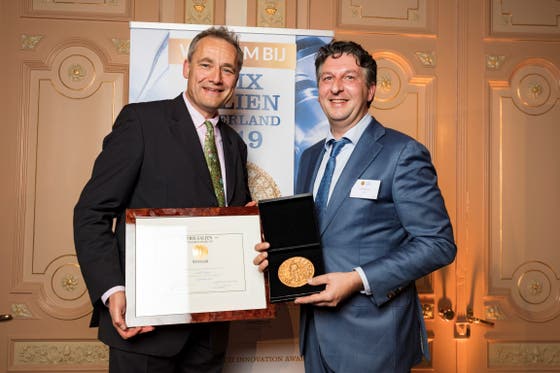Child Health nieuws
How do you recognize genetic predisposition to cancer?

In an estimated one in ten children, cancer is not due to bad luck, but because of an underlying genetic predisposition. How do doctors spot these hereditary disorders and what do they mean in practice? Dr. Marjolijn Jongmans, clinical geneticist at UMC Utrecht and investigator at the Princess Máxima Center, studies the best ways to detect genetic causes of childhood cancer.
Read moreLeontien Kremer appointed professor of Late effects in pediatric oncology at Utrecht University
Leontien Kremer, pediatrician and principal investigator at the UMC Utrecht and the Princess Máxima Center, has been appointed professor of Late Effects in Pediatric Oncology at the Faculty of Medicine of Utrecht University, starting on 1 February. The position is a major boost for research into reducing health problems linked to treatment for childhood cancers. Kremer: ‘I hope that my professorship is the first step towards a whole new generation of researchers in the field of late effects.’
Read moreWhen a child loses its endocrine balance

“An optimal endocrine balance in childhood is necessary for adequate growth and development into adulthood, for recovery from illness and for fully participating with peers. When a child loses its balance, due to oncological or other disease, the pediatric endocrinologist wants to restore this. However, there are still many questions to be answered and resolved in this area." On October 8th , Hanneke van Santen held her mini-inaugural lecture in honor of her appointment as associate professor within Child Health.
Read moreAug 6: Research on corona in secondary schools

Many people in small spaces, ventilation that is not optimal ... Secondary schools can pose a risk for the spread of COVID-19. UMC Utrecht will conduct research into this together with TU Delft, Erasmus MC and IRAS.
Read moreCuring genetic disease in human stem cells
Whereas the CRISPR-Cas technology developed in 2012 cuts out a defect in a gene and replaces it with a new piece, the latest CRISPR technology works differently. The aim is to repair the error in the DNA without cutting it. This theoretically makes it a safer form of genetic editing. Scientists from Utrecht have shown for the first time that this technique can effectively and safely repair the DNA of stem cells derived from cystic fibrosis patients in the lab. The results of this study were published in the scientific journal Cell Stem Cell on the 20th of February.
Read moreSuccessful establishment of model for fetal growth restriction and preeclampsia

In close collaboration between the department of Obstetrics and Department of Developmental Origins of Disease (DDOD) we successfully established a rat model for fetal growth restriction and preeclampsia.
Read moreChild Health Jaaroverzicht 2019 (in Dutch)
Voor het complet jaaroverzicht van het speerpunt Child Health, klik hier.
Read moreNov 1: Over one hundred thousand euros from the Maarten van der Weijden foundation and KiKa for rese

In January 2020 the Maarten van der Weijden foundation and KiKa will launch a scientific study into the early detection of heart damage associated with childhood cancer. “A great step forward to a better future for children with cancer and for those who have survived the disease,"
Read moreChild Health week

During the first week of October, Child Health was in the spotlight in the Wilhelmina Children's Hospital. In that week, diverse groups learned in a diverse program more about the research program and what this implies for their professional and personal life.
Read morePrix Galien Research Award 2019 for Jeffrey Beekman

On Tuesday the 24th of September, Jeffrey Beekman received the Prix Galien Research Award 2019. Jeffrey and his team searched for a way to test CF patients who are not eligible for treatment with existing drugs in the laboratory to see if drugs would work for them. Because there were no organoids from the lung at that time, he used organoids from the gut of CF patients.
Read more